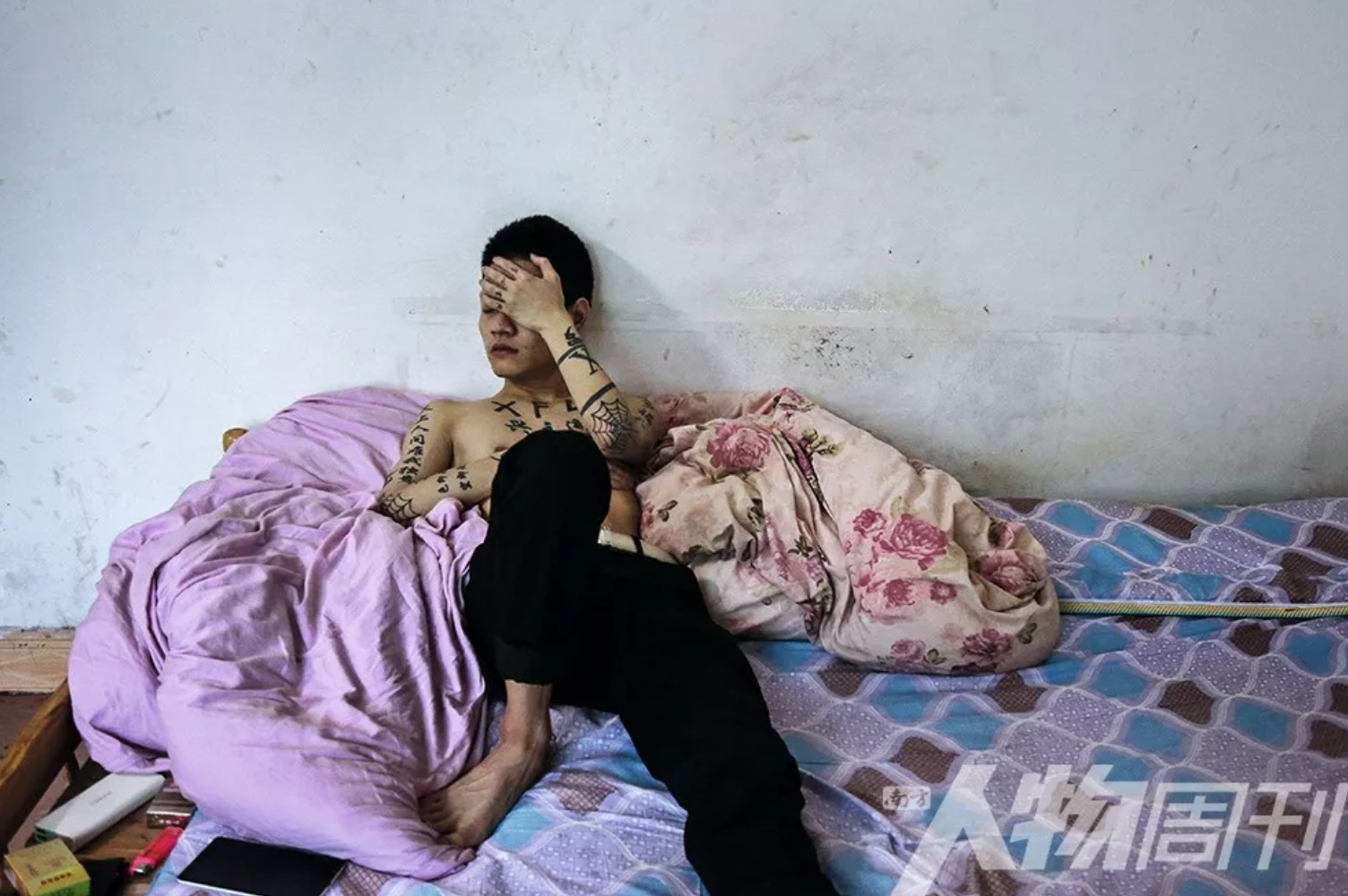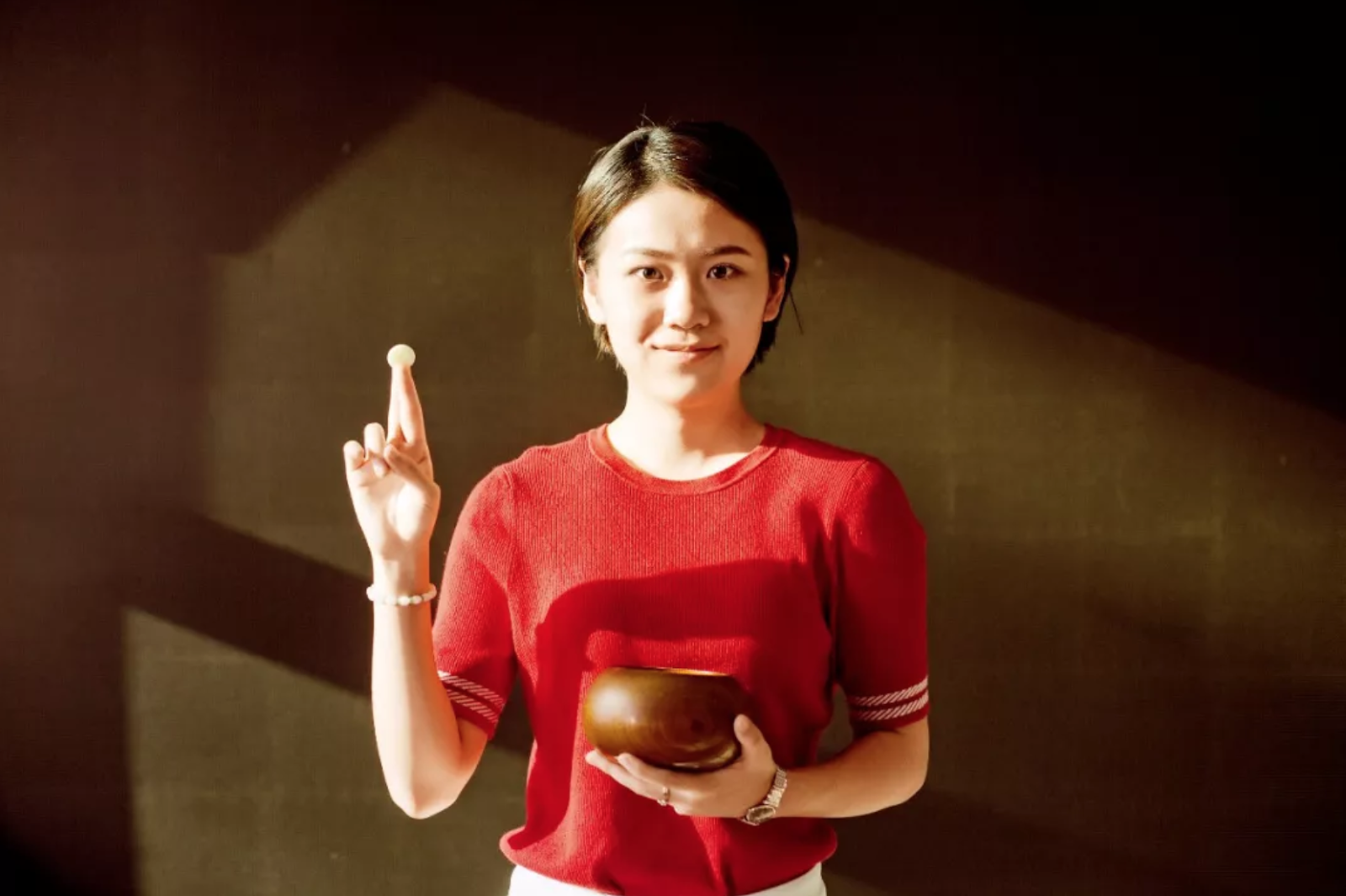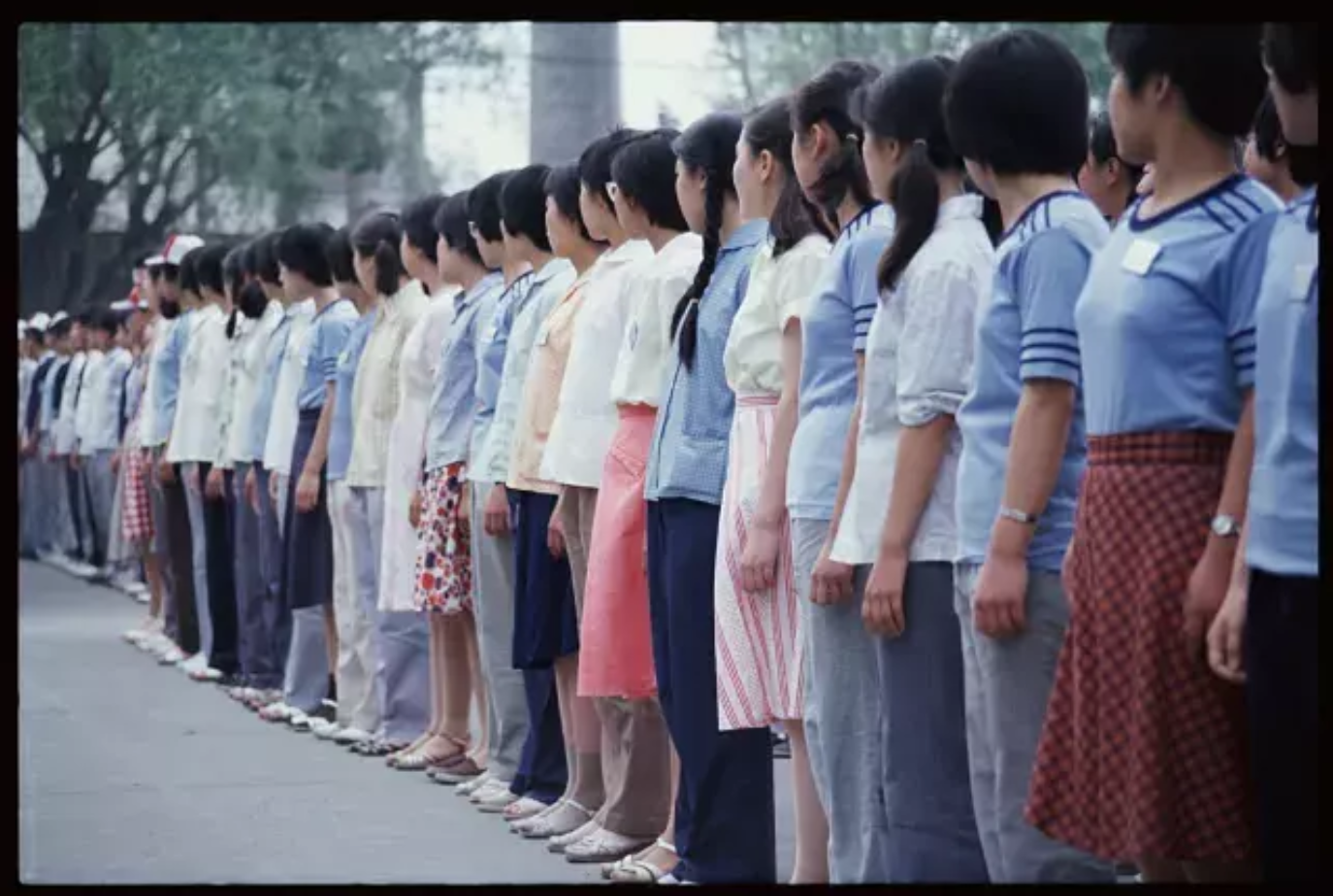Chinese Corner: Secrets of a female Go champion, and making money from online subcultures, or not
Chinese Corner: Secrets of a female Go champion, and making money from online subcultures, or not

A shamate who moves on from his glorious past
后来的“杀马特教父” | 图片故事
BY 刘有志 | 南方人物周刊
June 14, 2018
For a good chunk of the 2000s, Luo Fuxing 罗福兴 was the main man of China’s shamate (杀马特 shāmǎtè) subculture. As Sixth Tone precisely describes, shamate is a visual aesthetic characterized by “outrageous hairstyles, clothing, and makeup that took influences from glam rock, hair metal, and punk, without the wearers necessarily knowing what any of those things were.”
While shamate never went mainstream, Luo managed to cultivate an online community of thousands of shamates just like him. The article says that being shamate gave Luo a different, more confident personality. However, online fame can misguide people. After his father died in 2016, Luo realized that no matter how many followers he had online, he still needed to make a living.

AcFun, Douban, and money: How minority interest websites can survive
被收购的A站是少数群体的生存掠影
BY Ricky | VICE 中国
June 19, 2018
This month, news broke that Kuaishou, the massively popular short-video startup backed by Tencent, had acquired AcFun, an online video platform for anime and gaming enthusiasts. Launched in 2007, the site was a pioneer in cultivating a cult-like online community for Chinese anime fans, who took a tremendous amount of pride in being a minority among internet users in China. In the early stage of its existence, AcFun vowed to operate independently and never to charge its fanatic users.
But as the website grew, frequent crashes and bugs constantly annoyed its users, and unsurprisingly, the only solution to fixing them was to make money.
Douban, a popular Chinese social networking service website that focuses on film, books, music, culture, and events, faces the same struggle. As Weibo’s CEO, Wang Gaofei 王高飞, put it, users of AcFun and Douban contribute the least value among Chinese websites. “AcFun users care about nothing but a sense of superiority derived from the platform they are obsessed with. They don’t even have any concerns about the website’s survival,” Wang said.
In this article from VICE China, the author delves into the history of AcFun and Douban, along with an array of Chinese websites that tried to resist commercialization. Some of them are still fighting to survive, but most have been eliminated in the hyper-competitive world of online business.
All of that said, when I logged on to Douban this week, it was refreshing to see an ad campaign pushed by an international luxury jewelry brand in my feed. Some of my followers even shared the ad multiple times, jokingly commenting that Douban users’ value as potential customers for high-end products is finally being recognized. It seems that after years of mixed feelings about the site’s attempts to achieve commercial success, Douban users have eventually realized their platform will not survive if they don’t make some compromises.

What does it take to be the best female Go player in China?
在男子的世界里面,一个女性夺冠了
BY 单子轩 | 人物
June 20, 2018
In 2014, Yu Zhiying 於之莹, then 17, won the annual “Go New Talent King” competition in China, making herself the first female player of Go (围棋 wéiqí) to claim the title since the contest’s establishment in 1994. In an interview after the final game, Yu’s male opponent, Li Qincheng 李钦诚, admitted that facing Yu in the match gave him extra pressure because he had never previously encountered a woman in a finals match. He also said there were very few female players in the national team.
However in this profile, Yu says that Li didn’t know that since age 14, she had been aware that her male counterparts, by nature, enjoyed an upper hand in “analytic thinking and logic.” To make up for it, Yu says she developed her own special style of playing, which makes her able to compete against men and win.
There does not seem to be much pushback on the Chinese internet to the notion that men are naturally better at analytic thinking and logic.

Simpler times: Youth in the 1980s
80年代,女学生的裙子长度刚刚好
BY 看客insight
June 20, 2018
An outstanding documentary photography project often provides a glimpse into the real life of a generation, and that’s the exact intent behind Chinese photographer Ren Shulin’s 任曙林 gallery of photos of middle school students in the 1980s. Ren shot the series over the course of 10 years at the No. 171 Middle School in Beijing.
When Ren first arrived at the school in 1979 for a gaokao-themed shoot, he became so fascinated by the unprecedented vitality of the students, who, arguably, spent their youth in one of the most exciting times in Chinese history as the nation steadily opened up and embraced the outside world. In the following years, Ren spent a remarkable chunk of his spare time capturing intimate moments of his subjects. Digging through this nostalgia-inducing photo essay, you will be amazed by the proximity between Ren and the students even though he never spoke to them while taking pictures.
One complaint: Of all the things to focus on in a headline, 看客insight went with: “In the ’80s, female students’ skirts were just the right length.”

We can’t get enough of new gay icon Wang Ju
制造王菊: “百万”粉丝和他们的狂欢
BY 李慕琰 | 南方周末
June 16, 2018
The frenzy continues to build around Wang Ju 王菊, a contestant in the Chinese reality show Produce 101 创造101. Sixth Tone called her a new gay icon, and the Guardian called her “China’s Beyonce.” And now, as the contest is coming to an end, there is a controversy as to whether the show and Wang deserve all the hype and attention.
The Southern Weekly has added to the discussion with a feature article arguing that Wang is in fact a cultural product perfected by the show and the broader entertainment business. Meanwhile, Li Shiping 理识平 at the WeChat blog Potato Commune 土逗公社 analyzes some tactics used by the show’s producers to stir up discussions online. Datou, writing for the same WeChat blog, explains why she watched every episode of the show but didn’t vote for anyone. And Alexwood from Vice China tries to explore the correlation between Wang’s unconventional personality and her studies at an all-girls high school.






